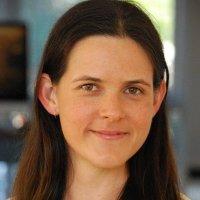Jaye Weatherburn is Digital Preservation Officer at the University of Melbourne
In a review conducted in 2016 for the University of Melbourne’s Digital Preservation Project, key research staff at the university were asked the question, What does digital preservation mean to you? The primary aim of this review was to identify and document gaps in service provision for research data management, and to highlight the main barriers impeding the implementation of sustainable digital preservation.
The responses from the review have been anonymised, remixed slightly, and in parts edited for length, but still accurately represent the answers as provided. They are presented here in both transcript form, and as an audiovisual creation using the Mac OS X El Capitan (version 10.11.6) speech-to-text voices: Fiona, Alex, Karen, Samantha, Tessa, and Daniel.
What does digital preservation mean to you? from Jaye Weatherburn on Vimeo: https://vimeo.com/244265437
(Transcript)
What does digital preservation mean to you?
- Alex: I don’t even know! I was hoping you’d tell me! I think this is a perpetually massive evolving beast, it means different things to different people.
- Karen: Digital preservation can mean so many things. I think on the one hand it means preserving data as it is, making sure that we keep our records. Previously people wrote letters, and it was all stored, and you can go find it in archives, but now it's much much more fluid, so it's much harder to keep track of.
- Samantha: Digital preservation is the ability to easily and simply and uncomplicatedly get access to digital assets in the long term. And to be able to access them meaning fully, at the very least, the way that the creators of the digital asset intended when the output was first created. And when we say long-term, we mean years, decades, centuries. We can start with years and decades!
- Tessa: Digital preservation means forever! It means long-term, moving through technologies, through time, in a sustainable way so you can have confidence that what you’re accessing – you know what it is, its status, when it was submitted, what version it is. Being able to keep migrating data to new formats to keep it accessible. Stuff also must be described well so it can be found.
- Fiona: Digital preservation begins with understanding what the data is for, what the compliance requirements around it are, then constructing a plan for its management, collecting the data in a way that’s not too software-dependent, then managing securely throughout its lifecycle and its resting period so you can access it in a meaningful way all the way through. It also involves checking on the data when it’s ‘at rest’ to make sure it’s still there and intact, through to disposal. You’ve got your working data that is continuing to grow and move, but when you’ve published your Nature article, you really should be concerned about being able to justify your research outputs, and documenting what’s the context around that, that should be preserved.
- Daniel: Digital preservation is storing data but also making sure it’s retrievable and useable for the future – that includes the file formats of course, it includes the hardware required to read them, and export them out again to a useable format.
- Karen: Digital preservation is more complex than what I expected or thought about before. It's this whole lifecycle now of trying to understand what you do with data. The trouble is, it's easy to just collect stuff. You can have petabytes of absolute rubbish. And the question is: who's going to make some value judgement about this at some point? Lots of it is just collecting. “Let's just add a few more petabytes to here, and we'll just put stuff in there”. There'll be a collection of stuff that no one really knows what's there, and what it's for. And at that point you may as well delete it because it's just stuff, sitting in a corner, taking up room.
Video credits
Audio track: Shadow You / Ollie Cram / Brave Man Down | CC BY NC SA http://www.bumpfoot.net/foot269.html
Images: Pixabay | Creative Commons CCO | https://pixabay.com































































































































